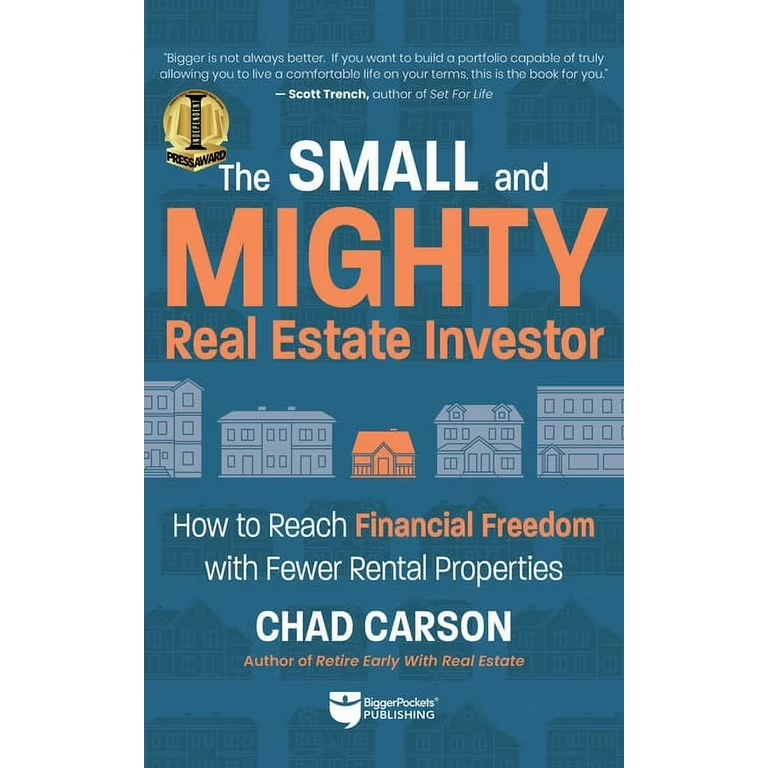Time is money?
My first experience with a real estate investor came from working for one in Atlanta. His name was Andy, and two of my friends and I were the guys that did almost everything on Andy’s rehabs.
The year was 2008, and the way my friends and I found ourselves working on both Andys flip and rental rehabs in the metro area was that we were part of the same construction crew. For the previous two years, we had been framing and finishing custom houses in a resort neighborhood up this way. But the housing market just crashed, and new construction, especially custom like we were doing, stopped almost overnight. As such, we found ourselves without a job.

A friend of a friend contacted one of my friends (that sounds like a Ferris Bueller quote) and introduced us to Andy. And shortly thereafter, we were Andy’s full-time crew.
Andy had a strange way of speaking. He would say things like “Time is money more than money.” And coming from a poorer background, that kind of language didn’t make sense to me.
The way Andy talked about money was like it was a material to be used. He spoke about it in the same manner we would talk about lumber or paint. And since being a slave to the dollar was all I’d ever known growing up, I was perplexed as to how Andy could view money in that manner.
Thankfully, when I asked Andy how he came to this understanding about money, he was kind enough to give me some resources to help me learn. In particular, he told me about Robert Kiyrosakis book “Rich Dad, Poor Dad.” And that book challenged me to rethink my view on money, and what career path I wanted to take.
This week I saw something get posted that I think should be challenged. But before we get there, let me ask you a question. Do you believe the phrase, “Time is money?”
I ask this question almost every time I speak at an investor event. And most people will agree with the statement. But I don’t. I think saying time is money is stupid. Time is not money. Time is life. Money is, well… just money. It can be spent, made, lost and regained. But you only have a finite amount of time to spend in your life. And because of that, your time is the most precious thing you possess. And you need to think long and hard about how you’re trading the time you have left. Because once it’s gone, it’s gone.
Back to the question I saw posted.
One of my real estate friends asked, “Who do you know that makes the most money as a real estate investor?” Different people chimed in talking about different folks making X amount of dollars and how wealthy they were because of it.

Now the reason this question got so much attention is because people often equate money earned with success. And so the more money you make, the more successful you are. Right?
I don’t think who makes the most is the best question to ask in order to gauge success. Let me tell you a story from Chad Carsons book “The Small and Mighty Real Estate Investor” that he calls the small and mighty parable.
In the story, Chad talks about a group of friends that were vacationing over in Europe who were three investor couples. Each had their own niche. The first couple had 10 paid for self-managed rentals in their local market. They had good long-term tenants in place, and the houses produced a positive cashflow of $10k a month. The second couple had a 50-unit apartment complex in another state. They had a good property manager in place and even after all expenses, they also enjoyed a monthly $10k positive cashflow from the apartments. The last couple had used syndication to pool investor money together to buy apartments all over the country and now were part owners in over one thousand apartments. And even though they were only part-owners in the apartments, they received $60k per month in positive cashflow.
That’s a lot of money!
The story takes a turn when, at the end of the week, the couples are having such a great time they want to extend their vacation. Couple one has plenty of free time because of their long-term tenants, as does couple two because of their property manager. And with plenty of income and freedom of time, they decide to stay another week.
Couple three, however, despite having a much larger income, had to return home. They had contractors to meet, zoning meetings to attend, investor capital luncheons to network at and the list goes on. So even though couple three made the most, and could easily afford to stay, they did not have the freedom with their time that the other two couples enjoyed and had to go home to work because of it.
This story illustrates the point I want to make. The question to ask is not “who makes the most?” The question should be “Who has achieved enough financial independence to live life on their terms?” And if you want to take it another step, ask who achieved it the fastest, and how?
As you can see from the small and mighty parable, making the most money doesn’t mean you have freedom. So don’t get sucked into that mindset because it’ll just lead you into another kind of rat race — do more for the sake of doing more. Instead, be like couple one and two, so that you will be free to spend the currency of your time in the way that’s most meaningful to you.
Joe and Ashley English buy houses and mobile homes in Northwest Georgia. For more information or to ask a question, go to www.cashflowwithjoe.com or call Joe at 678-986-6813.
